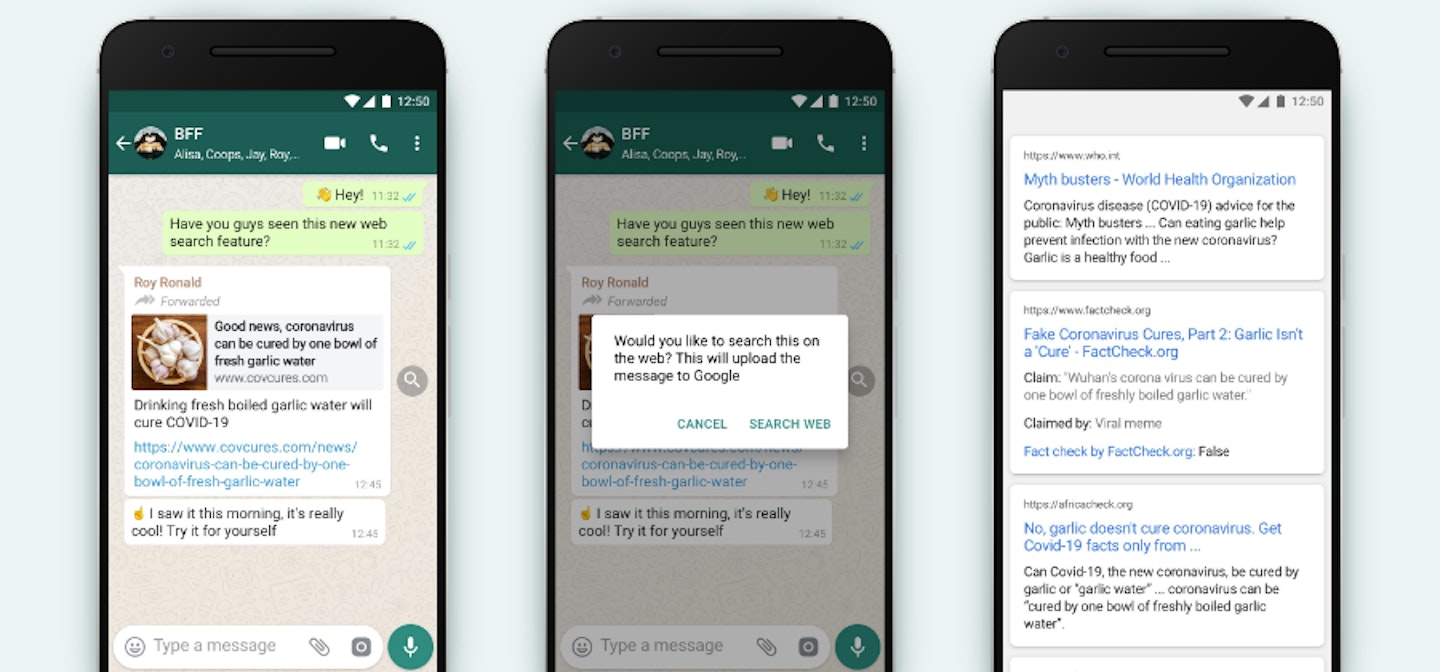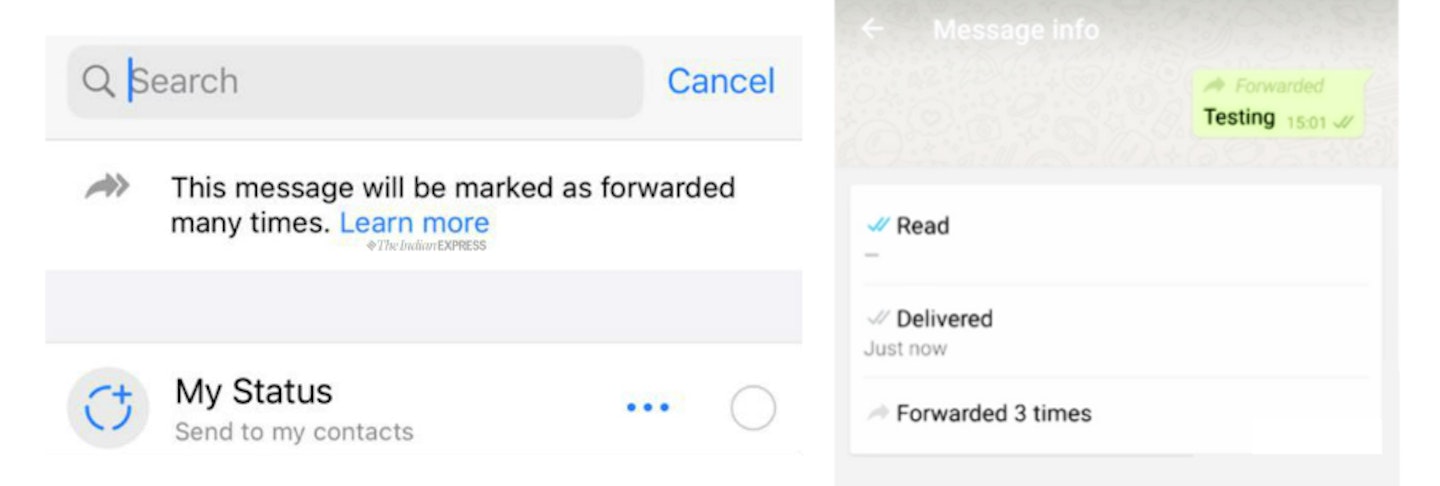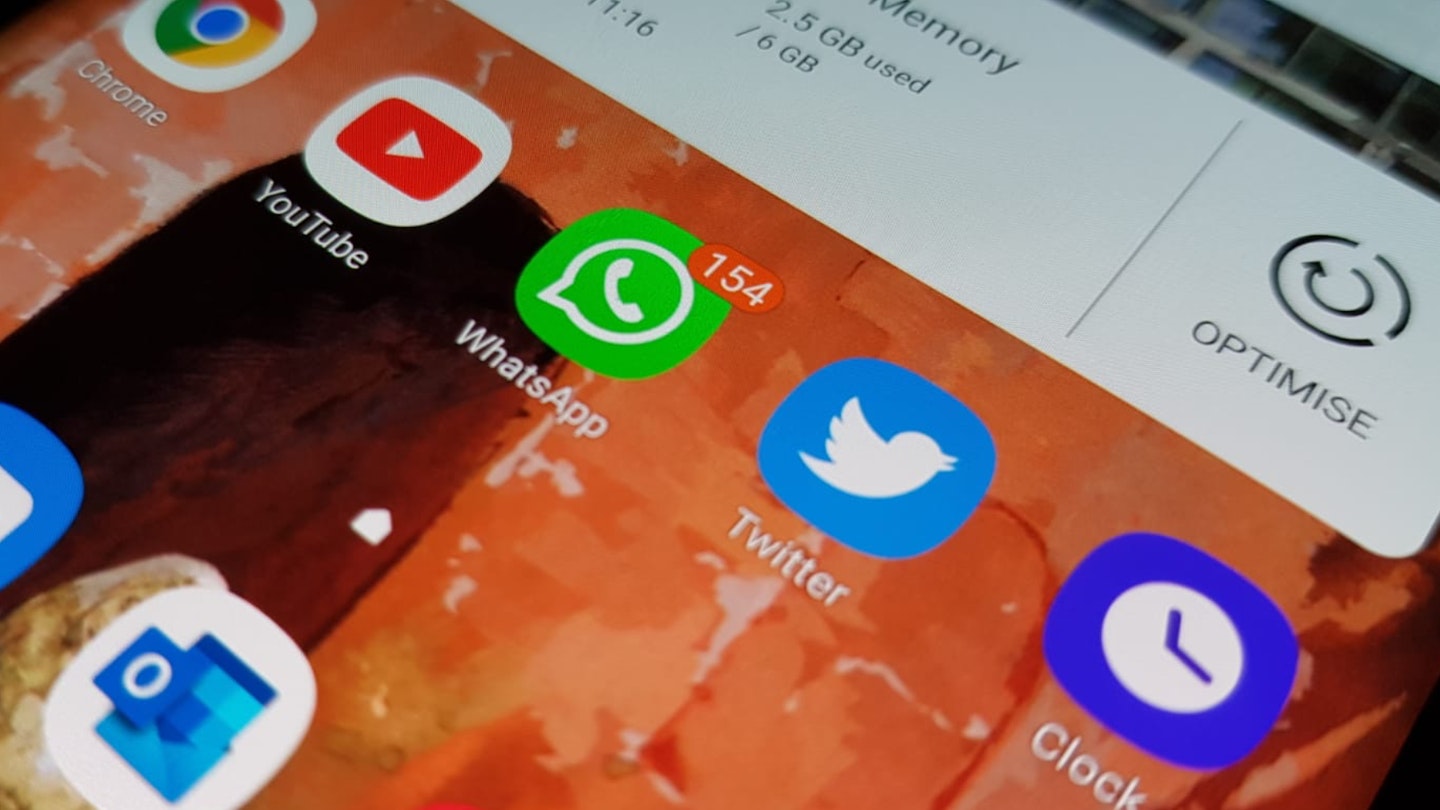WhatsApp has announced that it's piloting a new feature, aiming to combat the spread of misinformation and fake news through its messaging app. Named “Search the Web”, this feature provides users with a quick and easy way of checking the accuracy of links and news stories that they receive via a personal message.
A magnifying glass icon will appear by the side of the link. When this is pressed, WhatsApp will prompt the user to search the message’s details and credentials using Google. This will Google search will show the user more articles and links relating to the original’s subject – some of these, it is hoped, will either confirm or debunk the link's validity and accuracy.

One of the main difficulties that WhatsApp, which is owned by Facebook, has faced when attempting to fight misinformation is that WhatsApp messages are private, thanks to end-to-end encryption. This reliable privacy is one of the reasons that the app is the world’s most popular messaging platform.
By implementing the “Search the Web” feature, the user is given the choice to upload the link to Google, which is a separate company to Facebook and WhatsApp, via their browser “without WhatsApp ever seeing the message itself.” This avoids WhatsApp having to undermine or negate its privacy conditions and agreements.
The post on WhatsApp’s blog, initially seen by BGR, explains the relation of this update to the recent five-forward limit, and the “special forwarded label”, that displays double arrows to indicate when a message was not originally written by a close contact.

These updates are just part of the ongoing efforts big tech and social media companies like Facebook and Google are taking to combat the rise and viral spread of misinformation and fake news. While the term “fake news” began in recent years to reflect political disinformation and pervasive conspiracy theories, the practice has now developed into a public health concern during the COVID-19 pandemic. This is due to the inaccurate and potentially dangerous claims arising around the spread, prevention, and treatment of the novel coronavirus.
The ”Search the Web” feature began rolling out from August 3 in “Brazil, Italy, Ireland, Mexico, Spain, UK, and US for those on the latest versions of WhatsApp for Android, iOS and WhatsApp Web.”
